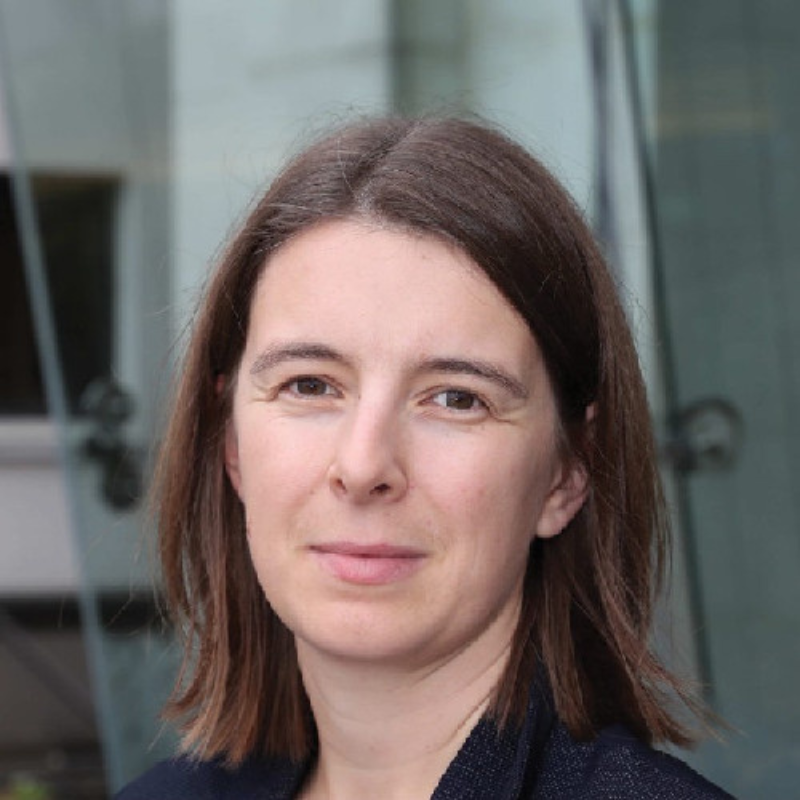Scotland's need for capital investment in infrastructure is well researched, documented and signposted. However, our ability to deliver in core areas such as net zero, transport, housing, digital infrastructure and projects supporting public service delivery is now acutely challenged by the state of our public finances following pandemic, war, recession and budget recklessness. So, how bad is the picture on our infrastructure prospects and what can be done to prioritise spending, innovate on funding, attract additional investment and find new ways to partner in project delivery?
Prior to entering into pandemic, infrastructure was one of the four pillars of the Scottish Government's economic strategy. Long term strategic planning allied to key infrastructure investment in the short term was the stated objective. Now however, we face the prospect that "our capital budget will be unable to deliver as much as would have been judged possible just a few months ago" - John Swinney MSP, Deputy First Minister, Scottish Government (Budget 2023-24 Debate, Scottish Parliament, 15 Dec 2022). Increased project input costs are fuelling infrastructure and capital project restrictions. No carry forward from the previous year's Scottish Government budget is anticipated, closing off another option for short-term assistance. In consequence, Ministers are reviewing the capital programme in the light of both rising costs and significant increased wider budget demands.
During the period in which we saw the report of the Scottish Infrastructure Commission, the arrival of ambitious and substantial increases in capital budgets, the implementation of NPF4 and the arrival of City Deals, Scotland's infrastructure seemed set for a sustained boost. However, our public finances have been dramatically altered following the hiatus of pandemic, the consequences of war for all economies, the impact of UK recession and the last Chancellor's short lived budget and its outcomes. So, where do capital budgets and projects and the prospects for investment in Scotland's infrastructure now stand?
What are our core infrastructure projects now and where do their prospects lie? How do we modernise infrastructure, achieve Net Zero, build what is needed to support public services, deliver placemaking projects for resilient communities, ensure transport infrastructure for economic growth and competitiveness and get the investment needed in bricks and mortar to meet housing demand?
This conference examines where we stand on Scottish capital investment and infrastructure now and in the future, what can be done to address the impact on project delivery and how we can attempt to innovate for new and additonal investment and partnerships. It will focus on three themes:
Topics to be discussed
Who should attend
This conference will be relevant for anyone involved in the planning, building, maintenance, financing or delivery of infrastructure in Scotland in both the public and private sectors. This includes those working in the development and maintenance of infrastructure projects and capital investment, those with responsibility for commissioning or strategic planning of infrastructure projects and those engaged in placemaking, partnership working or regeneration in major projects. This includes engineering and infrastructure companies, regulators, infrastructure lawyers, planners, academics and managers, project managers and professional advisors, people working in capital and infrastructure project services supply and their partners in the infrastructure supply chain.

Director - Research and Strategy
Rettie & Co

Senior Lecturer in Public Sector Finance and Chief Advisor of Studies
Adam Smith Business School, University of Glasgow and Secretary, BAFA Scotland

Financial Economist, Author and Blogger

Director Public Sector Partnerships, Scotland
Robertson

Senior Associate
Brodies LLP

Reader in Sustainable Urban Design
University of Dundee

Deputy Director for Infrastructure and Investment
Scottish Government
09:00 Chair's opening remarks
Lynn Bradley, Senior Lecturer in Public Sector Finance and Chief Advisor of Studies, Adam Smith Business School, University of Glasgow and Secretary, BAFA Scotland
UofGAsbs
Session 1: Understanding the strategic picture now and ahead
09:05 Keynote Speaker
Katherine White, Deputy Director for Infrastructure and Investment, Scottish Government
scotgov
09:20 The implications of where we stand now in our public finances
Frances Coppola, Financial Economist, Author and Blogger
09:35 Constructing future Scotland: Rethinking infrastructure policies and approaches
Dr Husam Al Waer, Reader in Sustainable Urban Design, University of Dundee
husamalwaer dundeeuni
09:50 Question and answer session
10:05 Comfort break
Session 2: Investment, partnership and matching investment to need
10:20 Innovation and attracting investment to Scotland
Jenna Monteith, Senior Associate, Brodies LLP
BrodiesLLP
10:35 Partnerships for infrastructure
Jonathan Guthrie, Director Public Sector Partnerships - Scotland, Robertson
RobertsonGroup
10:50 Housing
Dr John Boyle, Director - Research and Strategy, Rettie & Co
RettieResearch
11:05 Question and answer session
11:20 Chair's closing remarks
Lynn Bradley, Senior Lecturer in Public Sector Finance and Chief Advisor of Studies, Adam Smith Business School, University of Glasgow and Secretary, BAFA Scotland
UofGAsbs

John Boyle (Dr)
Director - Research and Strategy
Rettie & Co
Dr John Boyle leads the Rettie & Co Research Team, providing a cutting-edge research and consultancy function. His work informs clients on sales, lettings, investment and development opportunities. He also analyses the current status of property markets and assesses how they are likely to change. Over the last 17 years, he has worked for all of the major house builders in Scotland, the Scottish Government, many local authorities and investors. He led the Scottish Government’s study into the 5-year Review of the Home Report. He sits on Homes for Scotland’s Policy Advisory Group and is a member of the Society of Property Researchers and the Royal Institution of Chartered Surveyors.

Lynn Bradley
Senior Lecturer in Public Sector Finance and Chief Advisor of Studies
Adam Smith Business School, University of Glasgow and Secretary, BAFA Scotland
Lynn Bradley is an accountant with more than 30 years’ experience of working in the Scottish public and private sectors. She was formerly the Head of Finance for West Dunbartonshire Council, where her responsibilities included local tax collection. More recently, she was Director of Corporate Programmes & Performance with Audit Scotland. She is a former chair of CIPFA in Scotland and a former chair of the Local Authority Accounts Scotland Advisory Committee. She is currently a University teacher in the Adam Smith Business School at Glasgow University, where she specialises in audit, risk and control.

Frances Coppola
Financial Economist, Author and Blogger
Frances spent 17 years working for banks, where much of her work was concerned with settlement, accounting and risk management systems. She left banking in 2002 to concentrate on her singing career, but after the financial crisis returned to write about the banks that had so nearly blown up the world. She now writes on finance and economics for a wide range of media and industry publications including the Financial Times, American Express, the Independent, Open Democracy, CapX and CoinDesk. Frances is also a commentator for the BBC and Jazz FM, and is in demand as a speaker at economics and finance conferences. Her blog Coppola Comment is widely read in the finance & economics community.
Frances’s book “The Case for People’s QE” was published by Polity Books in June 2019. It was Bloomberg’s Book of the Month in September 2019 and was listed on Martin Wolf’s summer reading list at the Financial Times. The Korean edition was released in February 2020.
In addition to her writing and speaking commitments, Frances continues to sing and teach professionally, pandemics permitting. She is an Associate of the Royal College of Music and a Fellow of the Royal Society of Arts.

Jonathan Guthrie
Director Public Sector Partnerships, Scotland
Robertson
In his role as Director for Public Sector Partnerships, Scotland, Jonathan Jonathan focuses on developing project options, solutions and delivery strategies for Robertson's public sector customers across Scotland. He manages the contact point for Robertson Group with key public partners and helps develop strategies that deliver their objectives. Over the last 11 years he has assisted numerous public bodies to develop and deliver major projects across the UK.
Jonathan has over 20 years’ experience in the Technology, Design, Property and Construction sector, as well as in Finance and Investment in Strategic Development working with both the private and public sectors.
Jonathan has overseen the development of projects, particularly for two funding mechanisms: REIF (Renewable Energy Investment Fund) and UK GIB (Green Investment Bank). This has involved the development and coordination of the Scottish Green Investment Portfolio (SGIP) assisting the accessibility for finance for Low Carbon and Green Sector projects, development and planning of new funds and delivery structures for Energy, Waste and Community Renewable projects.
A large part of Jonathan’s Scottish Government role was in liaising between the public and private sectors for project inception and development. He advised on the development of teams to progress projects and investment structures and sourcing Public and Private finance and delivery interest for major projects.
Jonathan also carried out a similar role for the City of Edinburgh Council, for strategic property and investment development. He created Project Edinburgh and the String of Pearls projects for the City of Edinburgh whilst on secondment from Standard Life from 2004 to 2008.
Having created a number of development frameworks, projects and investment opportunities with the Project Edinburgh Design Team, Jonathan and the team then secured major investment interest in the city from global investors and developers. These include the St James Quarter (Henderson Global), SOCO.


Husam Al Waer (Dr)
Reader in Sustainable Urban Design
University of Dundee
Dr. Husam AlWaer
Qualifications:
B.Arch (hon), MRTPI, Ph.D, BREEAM AP, AoU, Recognised Practitioner in Urban Design (UDG), Placemaking expert
Academic appointments:
Reader in Sustainable Urban Design, University of Dundee, School of Art and Design (Architecture & Urban Planning)
Professional appointments:
Associate - Kevin Murray Associates
Associate - Proctor and Matthews Architects
Husam is an 'urbanist', with a background in architecture, urban planning and sustainability. He is currently Reader in Sustainable Urban Design at the University of Dundee, having previously researched and taught at Reading and Liverpool universities. He has worked with various UK and International governmental and corporate agencies on research, training and engagement projects. Husam’s work has had a demonstrable impact in both academia and practice. He has a focussed interest in the past and future of sustainable places, towns and cities (including the 20 minute Neighbourhoods), and in particular the development of new approaches to sustainable urbanism and the way new methodologies are facilitated and managed. Husam is an award-winning author with published work on a wide range of subjects from architecture, urbanism, sustainability, and healthy neighbourhoods to the specifics of placemaking facilitation and performance evaluation. He brings insight to research, teaching, community stakeholder engagement and professional practice at the intersection between theoretical and contemporary policy and practice. Titles include: Site and Composition: Design strategies in Architecture and Urbanism, Rethinking Masterplanning: Creating Better Places, ‘ Unpacking the concept of 20 Minute Neighbourhoods: disentangling ‘desired outcomes’ from the ‘means’ available for achieving them’, ’Changing the Focus: Viewing Design-Led Events within Collaborative Planning’, ‘Unhealthy Neighbourhood “Syndrome”: A Useful Label for Analysing and Providing Advice on Urban Design Decision-Making?’, and ‘Urban design as a specialised, evidence-based, coordinated educational and professional endeavour’. Husam is a member of the Urban Design Group Executive Committee,Honorary visiting professor at Damascus University, and Honorary Chief Editor of the Urban Design and Planning journal. He was invited as an Official Observer & Presenter for COP26, Glasgow.
Husam is currently working on -5 Million Euro funded project- four year cross cultural EU project (Urban ReLeaf) that aims to co-create citizen-powered data ecosystems to support climate change adaptation, green infrastructure, and urban design planning. Husam has a national and international profile through his contribution to government departments and professional institutes. These include: The Scottish Government's Planning Review Evidence; the recent Scottish Government investigation into community participation design processes; the RTPI's Measuring Planning Outcomes; coordinating and facilitating the Cairo International Future City Co-Design Workshop; curating and facilitating ‘Damascus 2040: A city of 15 minutes neighbourhoods’ workshop (2021); curating and facilitating the Cairo Holy Family Trail Collaborative Design (July 2022); and recently, he is leading an international team developing a sustainable vision for the old city of Damascus (2021/2023). Over the last year, he was twice invited to undertake leading edge place change training programmes for the ministry of Urban Planning and Housing in Oman. Husam is a Registered Overseas Architect, a Corporate Member of the RTPI, an Academician with Academy of Urbanism (AoU), a Recognised Practitioner in Urban Design (UDG), and a BREEAM AP assessor. He was twice acted as a Special Advisor to Scottish Government charrette events and the New Ideas Funded Programme. My approach to urban design and sustainable urbanism been recognised within commendations and various national and international Awards (see the award section). For example, I was awarded the 2014, 2016, and 2022 the prestigious Reed and Mallik Ltd Journal Prize for the best papers published in the Journal of Urban Design and Planning. Also, I was awarded the National Research Award 2020 for the Best Published Research Paper in the Energy & Industry Sector in the Sultanate of Oman.
Husam has also undertaken leading edge place change training as part of the ‘urban laboratory model’ at the University of Dundee which enables architecture and urban planning students to creatively and analytically study a place intensively in a manner that addresses real issues and problems, providing solutions aimed at improving the quality of life for its own communities, businesses and visitors. This year Angus Council has been used as a creative ‘Civic Design Rural Laboratory’ partner in which to explore and test ideas generated by Architecture and Urban Planning students at the University of Dundee. The aim of this project is to devise a strategy and design for how Monifeith and its surrounding villages and small rural settlements might grow and function in a ‘connected communities approach’. Husam have been involved in training different audiences and ‘levels’ – from school pupils, to undergraduate and Master students, to professionals, politicians, community groups and leading policy makers. He is experienced at providing creative, interactive events – that are fun, challenging, learning sessions that can assist in breakthrough thinking and consensus-building.

Katherine White
Deputy Director for Infrastructure and Investment
Scottish Government
Katherine has played a leading role in the development of Scottish Government policy in a range of technical and high-profile policy areas, specialising in Energy and Climate Change.
Katherine’s current role is to lead the Scottish Government’s approach to the allocation of public funding for infrastructure investment; ensuring best value and targeting spending that delivers Scotland’s long term outcomes.
This conference will take place online.
How to book
You can book to attend, or order the video only, in 3 ways:
Conference fees
Delegate fee (includes video recording) – £149 +VAT
Note - if booking online the fee shown will default to £169 plus VAT on the form but you will only pay £149 plus VAT
Video recording (should you wish to purchase a video recording without registering to attend the conference) – £99 +VAT
Group discount – organisations booking 3 or more delegates will receive every third delegate place free of charge (please complete further forms if necessary)
Payment
We do not currently accept payments online and will send you an invoice.
You have the option of paying by BACS or card.
BACS details will be included on the invoice.
If you wish to pay by card, please tick the appropriate box on the booking form and a member of our staff will contact you by telephone to take the payment. Alternatively you may call 0131 556 1500.
Terms and conditions
By placing this booking, you agree to the full terms and conditions found via the link at the foot of our website.
Book delegate places or purchase video recording.

